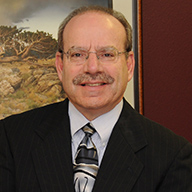 |
|
| Volume 20 Number 5 May 2018 | Page 5 |
Denny Petrillo
 Solomon noted that while evil men may lengthen their lives by wickedness, the wise path is to “fear God, to fear Him openly” (Ecclesiastes 8:12). Fearing God “openly” means to publicly fear Him. This is fear clearly demonstrated, exposed for the entire world to see. This point offers several lessons:
Solomon noted that while evil men may lengthen their lives by wickedness, the wise path is to “fear God, to fear Him openly” (Ecclesiastes 8:12). Fearing God “openly” means to publicly fear Him. This is fear clearly demonstrated, exposed for the entire world to see. This point offers several lessons:
First, only “open fear” is true fear. It is possible for one to play the game, acting like a God-fearer, but in reality for a person to be a hypocrite. He publicly acts one way, but privately he acts another way. When alone, he lives like the world, doing what faithful Christians would never do. Yet, God will bring to judgment those secret sins (Ecclesiastes 12:14) and everything done that had been hidden from the eyes of men (2 Timothy 2:24). Note, though, that nothing is hidden from the eyes of God.
Second, only “open fear” is God approved. God wants His people not to cower before the threats, pressures, persecutions and ridicule of men (Matthew 5:10). Instead, He wants men to “fear Him who can destroy both the body and soul in hell” (Matthew 10:28). Those who “openly fear” God visibly love Him. They worship every Lord’s Day. They speak about God, Jesus, the Bible and the church. They boldly speak the truth, and they are not ashamed of the testimony of Christ (2 Timothy 1:8).
Third, only “open fear” is dangerous. Joseph of Arimathea was a disciple of Jesus, but “a secret one” (John 19:38). By not openly showing his allegiance to Jesus, Joseph bypassed persecution. It is commendable that Joseph eventually let his loyalty to Jesus be known. However, there are those who forever fail to take that bold step, cowering before the constant threat of persecution. Yet, God has no use for the coward (Revelation 21:8). He is not the source of one’s timidity (2 Timothy 1:7). If we desire to live godly in Christ Jesus, we must let our commitment to Him be known (2 Timothy 3:12).
Those who do not fear God are also quite public in their mockery. “They have set their mouth against the heavens and their tongue parades through the earth” (Psalm 73:9). If God’s people are not lights on a hill, publicly proclaiming the excellencies of God, who will be?![]()
Mark T. Tonkery
 If you have walked down your grocery store aisle lately or have noticed the latest restaurant commercial, you may have noticed that advertisers are using the term “artisan” to advertise their product. Items such as pizza, sandwiches, cheeses, meats, breads and jams are some, just to name a few. These items are all being labeled “artisan” to appeal to customers that their products are special, unique, handcrafted and an effort to get back to the original taste and flavor of their product. The “artisan movement,” we might say, is also trying to attract customers to the idea that their product is not mass produced or done in bulk. In other words, there is a real person behind the creation of this food item, and this product is of high quality, special and unique.
If you have walked down your grocery store aisle lately or have noticed the latest restaurant commercial, you may have noticed that advertisers are using the term “artisan” to advertise their product. Items such as pizza, sandwiches, cheeses, meats, breads and jams are some, just to name a few. These items are all being labeled “artisan” to appeal to customers that their products are special, unique, handcrafted and an effort to get back to the original taste and flavor of their product. The “artisan movement,” we might say, is also trying to attract customers to the idea that their product is not mass produced or done in bulk. In other words, there is a real person behind the creation of this food item, and this product is of high quality, special and unique.
One of the reasons the “artisan food movement” has gained momentum is because food has been so mass produced and manufactured in bulk that it has lost something. It has lost the craftsmanship, flavor and nutrition it once provided. In a similar way, Christianity has lost something in modern times as well. The religious world is divided and filled with doctrines contrary to the Bible. Modern “Christianity” looks very different than what one finds in the Bible.
In thinking about the “artisan food movement,” I could not help but think how similarly this relates to Christianity; we must have an “artisan Christianity.” Let’s get back to the Bible; let’s get back to being like the Bereans in Acts 17:11 who searched the Scriptures daily, and let’s be the church we find in the New Testament—nothing more and nothing less. Our goal as Christians should be in one sense “artisan”—getting back to the original, as Jesus designed it (Matthew 16:18).
One can read in Acts 2 about when Jesus’ church became a reality on the Day of Pentecost . Peter preached, just as the prophets of the Old Testament foretold, that Jesus the Son of the Living God did come to earth; He lived, died and was raised from the dead to redeem all people from their sins—thereby offering salvation. We see that Christ even gave the terms of salvation and entrance into His church. Notice Jesus’ words in Mark 16:16. “Whoever believes and is baptized will be saved, but whoever does not believe will be condemned.” Then Peter repeated Jesus’ words in Acts 2:38. “Repent, and let every one of you be baptized in the name of Jesus Christ for the remission of sins and you shall receive the gift of the Holy Spirit.” One then reads in Acts 2:21 that “those who gladly received the word were baptized,” and then that “the Lord added to the church daily those who were being saved” (Acts 2:47). The rest of the Book of Acts, as well as the rest of the New Testament, teaches how Christians are to worship God, treat people and live each day of their lives for the Lord. The teachings of Christ, as recorded in the New Testament, set Christians apart from the rest of the people in the world, and it will set us apart as well.
If we would only get back to the Bible and be the church that Christ established, then we will be His unique, special and distinctive people. We will be just as He created us to be. Let’s be “artisan Christians.” Let’s go back to the original as created by the Savior!![]()